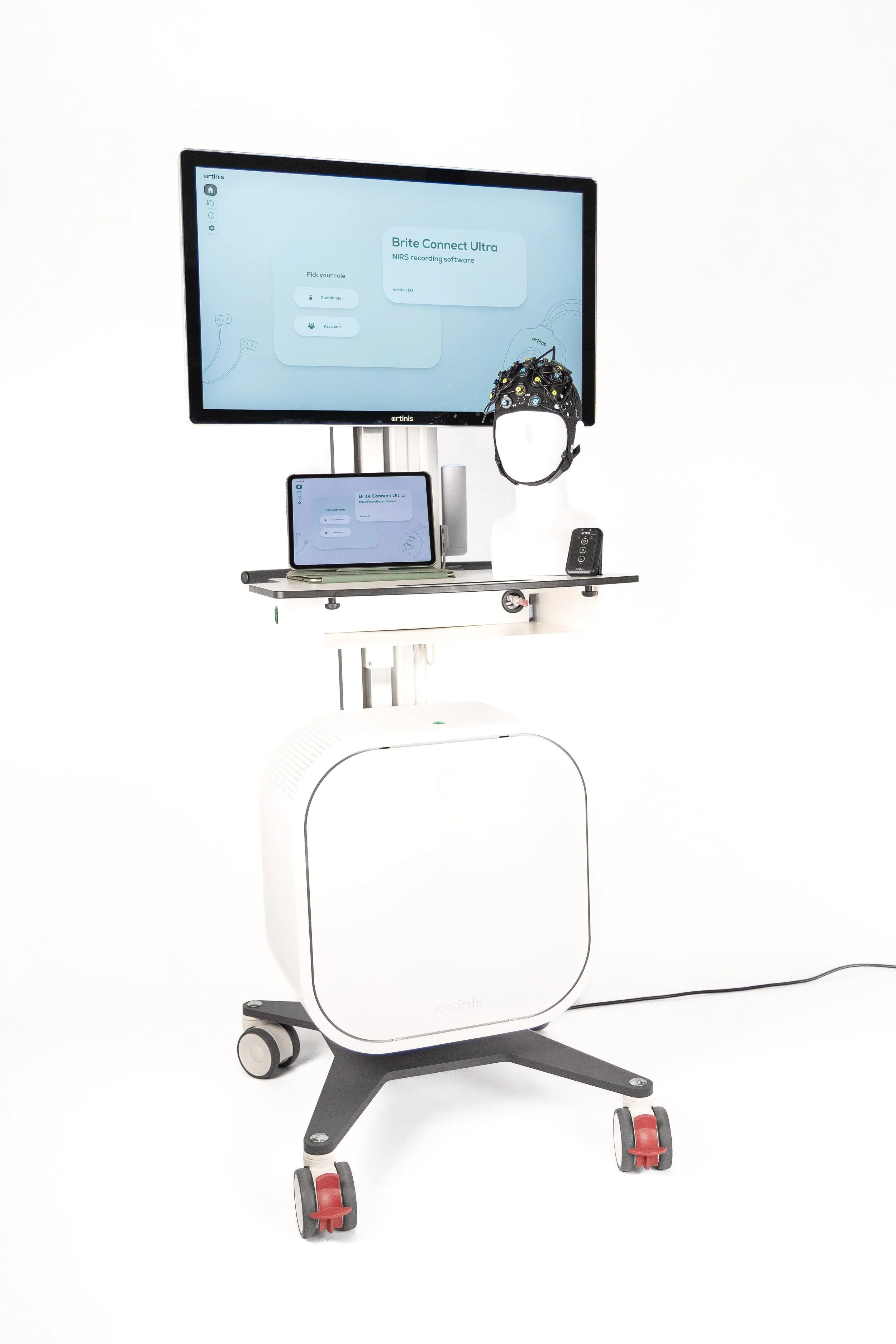Hyperscanning Summer SchoolThe Versatility of Hyperscanning to Study Group Interaction
Thank You for Making the Hyperscanning Summer School 2025 a Success!
We’re incredibly grateful to everyone who participated in and contributed to the Hyperscanning Summer School 2025. Your enthusiasm and engagement played a key role in making this event such a success — thank you!
In line with our mission to make brain imaging more accessible, all recorded talks from the event will be available soon on the Artinis YouTube channel.
Make sure to subscribe to stay updated as new content is uploaded!
The Speakers
Keynote: Dr. Pascal Vrticka
Dr. Pascal Vrticka is currently working as Associate Professor at the University of Essex, where he functions as Principal Investigator of the Social Neuroscience of Human Attachment (SoNeAt) Lab. His research focus lays on studying human interaction and the functioning of the human social brain using, amongst others, neuroimaging tools, such as fNIRS.
Dr. Wei-Peng Teo
Dr. Wei-Peng Teo is currently working as Associate Professor at the National Institute of Education, Nanyang Technological University in Singapore. His research focus lays on understanding mechanisms behind learning and motor control by using various neuroimaging techniques, such as fNIRS or EEG.
Dr. Dana Shamai-Leshem
Dr. Dana Shamai-Leshem is a postdoctoral fellow at the University of Haifa in the laboratory of Prof. Simone Shamay-Tsoory. She holds a Ph.D. in neuroscience from Tel Aviv University, where her research focused on attentional biases in major depressive disorder. Her work spans cognitive and affective neuroscience, with a particular interest in empathy, psychopathology, and interpersonal dynamics. Currently, her postdoctoral research explores the neural and emotional mechanisms of loneliness, focusing on inter-brain synchrony and social connectedness during dyadic interactions using fNIRS.
Dr. Victoria St. Clair
Dr. Victoria St. Clair’s research examines the neural and behavioural dynamics of children’s naturalistic interactions. She is currently a postdoctoral researcher based at the Centre for Brain and Cognitive Development’s Toddlerlab at Birkbeck, University of London.
Dr. Ruud Hortensius
Dr. Ruud Hortensius is currently working as Associate Professor at the University of Utrecht, Department of Psychology. He us further leading the ERC-funded Robot in the family project, on which Ronja Held, Aline Moore Lorusso, and Ann Hogenhuis are PhD candidates on. During the talk they will outline the mobile lab approach taken to study family dynamics and the impact of AI thereon, give examples on how to study this in a four-person hyperscanning setup, and show how this approach can also help to understand the effect of interpersonal closeness on group dynamics.
Noa Brande-Eilat
Noa Brande-Eilat is a PhD candidate in Prof. Simone Shamay-Tsoory's laboratory. She is a data scientist with a specialization in the field of neuroscience. neuroscience and data science. She holds an M.Sc. in Neuroscience from the Weizmann Institute of Science and graduated summa cum laude with a B.A. in Psychology from the University of Haifa’s honors program. Her expertise includes brain-computer interfaces, machine learning, algorithm development for physiological and behavioral signals, and signal processing. She has applied these methods in academic, tech-industry, and clinical contexts. Her research examines neuronal and behavioral synchrony in familial contexts, the interplay between these synchrony types, and neurofeedback interventions designed to modulate them.
Dr. Ira Marriott-Haresign
Dr. Ira Mariott-Haresign is a Postdoctoral Research Fellow at the University of East London funded by the European Research Council, under the supervision of Dr Sam Wass. His PhD work explored the fine-grained mechanisms underpinning inter-brain synchronization during early social interactions. His postdoc work has continued to explore fine-grained neural mechanisms associated with early visual and attentional processes.
Brite Ultra
1st and only fNIRS Hyperscanning System
Hyperscanning, the simultaneous measurement of brain activity and interconnectivity in multiple participants, is gaining increasing importance in studying social interactions. Brite Ultra is the only mass hyperscanning system worldwide. It enables simultaneous wireless fNIRS group measurements of up to 30 subjects. The system offers flexibility and versatility, for instance, in group size, template choice, and measurement setting, while still guaranteeing completely synchronized measurements during activities such as performing daily activities.








